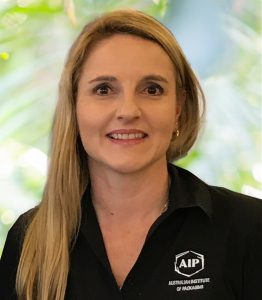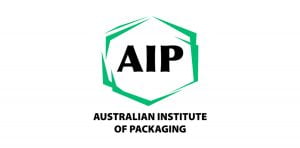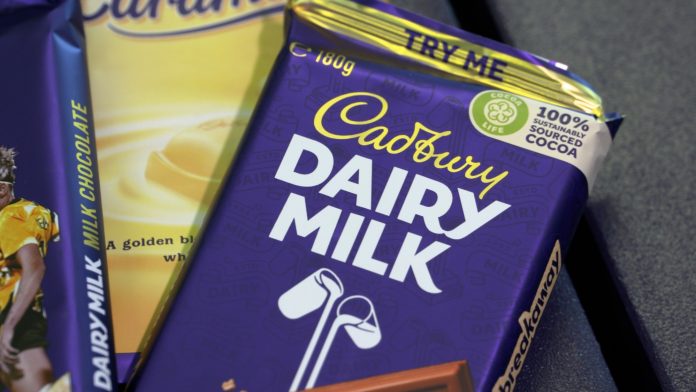When you think of patio furniture, streets, bollards, fences, patio decks, and even footbridges, you may not find that a growing number of these items are made from "soft plastics" to recycle flexible packaging and materials that don't have a home Moment in the current roadside recycling systems in Australia.
 Nerida Kelton
Nerida Kelton
By Nerida Kelton, Executive Director of the Australian Institute of Packaging.
Of the nearly 1.1 million tonnes of plastic packaging that were brought onto the market in 2017/18, around 352,000 tonnes (33%) were soft plastics. However, only 29,000 tons, or 8% of the soft plastics were recycled, with around 28,000 tons being recycled from commercial and industrial sources and only 1,000 tons being recycled by consumers.
This low soft plastic recycling number has shown that industry and government need additional focus on developing a strong national soft plastic consumer collection program, combined with investments in additional reprocessing facilities and innovations to incorporate recycled content into flexible materials. Changes in sourcing strategies are key to stimulating further investment in recycling and reprocessing of soft plastics and ensuring that soft plastics are viewed as a valuable resource that can be recycled and not disposed of as waste.
What does the term soft plastics really mean?
Soft plastics are traditionally polyolefins. This is a collective name for types of plastics that include (PE) polyethylene, including HDPE (high density polyethylene), LDPE (low density polyethylene), LLDPE (linear low density polyethylene), PP (polypropylene), and (BOPP) biaxially oriented polypropylene . The polyolefins are the most acceptable materials for current soft plastic recycling and reprocessing programs.
There are other possible materials used in soft plastics including: (PET) polyethylene terephthalate, (PVC) polyvinyl chloride, (PS) polystyrene, (EVOH) ethylene-vinyl alcohol copolymer, (PLA) polylactic acid, bioplastics, aluminum, nylon and Paper. These materials degrade the value of polyolefins and in some cases are incompatible with most recycling systems.
The composition of soft plastic packaging can be divided into two groups: single-layer and multi-layer. Single layer packaging refers to the use of a polymer in developing the material, and often the material is PE. Multi-layer packaging consists of two or more materials that are joined together by coextrusion or lamination. Using different types of materials together results in a package with unique barrier and mechanical properties.
Are soft plastics recyclable in Australia?
Currently, most Australian roadside recyclable packaging collections do not accept soft plastics. This restriction is necessary because traditional material recovery systems (MRF) do not allow handling of films and flexible plastics as they can get caught in machines and cause breakdowns or damage.
This limitation has also resulted in the fact that many consumers are simply not aware that Australia has recycling and reprocessing facilities for the recovery of soft plastic packaging for end users. In Australia, a number of companies are actively and passionately working to develop new innovative solutions that will ultimately minimize the amount of soft plastic that ends up in landfills or in the oceans and the environment. Companies such as RED Group, Replas, Close the Loop, Kunststoffwälder, Newtecpoly and others.
How are household soft plastics collected in Australia?
The RED Group is an organization for sustainability and resource recovery that developed and implemented the REDcycle program in 2011. REDcycle is an innovative recovery model for post-consumer packaging made of soft plastic. The program started with 100 supermarkets in Melbourne and now has 1,830 retail distribution points, mainly in Coles and Woolworths supermarkets across Australia. At this level of stores and locations where consumers can drop off soft plastic packaging, the REDcycle program is rated as “widely accepted” recyclability, with over 80% of the population having access to the bins.
The REDcycle program is a true product stewardship model, where manufacturers, retailers and households share the responsibility to create a sustainable future for as many soft plastics as possible. The cost of collecting and processing the material is covered by many of Australia's best-known brand owners and retailers. Together, Coles, Woolworths and brand owners are enabling the national REDcycle program to make it easier for consumers to actively participate in the collection and recycling of household soft plastics in Australia.
What types of soft plastics are accepted under the REDcycle program?
At its simplest, the REDcycle program accepts clean, dry, uncontaminated flexible packaging materials that meet the REDcycle material thresholds and have been approved by the Australasian Recycling Label (ARL) program. Packaging such as bread bags, pasta and rice bags, old shopping bags, biscuit and ice cream packaging, confectionery and freezer packaging, plastic bags, cereal boxes, fresh produce bags and plastic bags from Australia Post are accepted through REDcycle.
The REDcycle program is recognized by the Australian Packaging Covenant Organization (APCO) and the ARL program and has put “Return to Store”, “Store Drop Off” or REDcycle logos on the packaging for consumers. All brand owners must become REDcycle partners to use these symbols on the packaging and must also join APCO. The “Return to Store”, “Store Drop Off” or REDcycle on-pack logos communicate to consumers that they can return the packaging to collection points at major retailers across Australia.
Partners in the REDcycle program have access to the Packaging Recyclability Assessment Portal (PREP) to assess the recyclability of their packaging in Australian recovery systems. Packaging and artwork must also be approved under the ARL program and meet REDcycle recycling requirements in order to include the logo on the packaging.
How do I know which soft plastics can and cannot be returned to the store?
Look out for the “Return to Store”, “Store Drop Off” or REDcycle logos, which are increasingly appearing on packaging as part of the wider ARL program. If none of these logos are included on the packaging, either it is not part of the program or the materials have not been approved as recyclable under the REDcycle program. These logos are a real indicator of whether the soft plastics can be returned to the store for collection and recycling through the REDcycle program.
Consumers are encouraged to set up a soft plastic container at home for clean and dry packaging, and then return the plastics to the retail outlets participating in the REDcycle program.
Usually, the REDcycle collection bins are in front of the stores near the cash register and possibly something that you have never noticed. If you cannot find the REDcycle container, please contact one of the employees.
There are now 66 partners in the REDcycle program, including brands, packaging suppliers and retailers. The REDcycle program has recovered over 950 million soft plastic items returned from customers since 2012. The REDcycle program is successfully reclaiming approximately one million pieces of soft plastic per day and has diverted enough soft plastic to orbit Australia three times.
The RED Group's website redcycle.net.au provides detailed information on which soft plastics are accepted under the REDcycle program and provides consumers with a list of all collection points across the country.
What happens to the soft household plastics after they are collected from retailers?
The RED Group collects, sorts the recovered soft plastic film packaging and then sends it to its local partners:
- Replas is Australia's leading blended recycled plastics manufacturer looking to provide a solution to plastic waste by delivering high quality, affordable and sustainable products. Replas mixes this mixed plastic with rigid plastics to form a material that is suitable for the manufacturer of new products made from recycled plastic. The company produces a range of over 200 recycled plastic products, including bollards, signage, patio furniture, fitness equipment and enduroplank / decking, as well as products for traffic control, parks and gardens and the utility industry. Replas aims to turn waste into sturdy recycled plastic products. At the same time, we offer sustainable alternatives to the unnecessary use of new goods. replas.com.au
- Close the loop Use REDcycle material as part of a high-performance additive made from recycled asphalt for the road infrastructure known as Tonerplas. Tonerplas is Close the Loop's groundbreaking asphalt additive that improves the properties of asphalt. It creates a high quality road surface that lasts 65% longer than traditional asphalt and is an important solution to the problematic soft plastic waste problem. The formulated product is melted into the asphalt mix. A key Downer Group partner then adds recycled glass and recycled asphalt paving to the mix to create a superior, lower carbon product that results in higher quality roads. Approximately 530,000 plastic shopping bag equivalents, 168,000 glass bottle equivalents, waste toner from 12,500 printer cartridges, and 20% Reclaimed Asphalt (RAP) are used on every 1km of road paved with plastic and glass modified asphalt. closeetheloop.com.au
- Plastic forests uses REDcycle material as part of products such as mini wheel stops and mounting blocks for air conditioning systems. Plastic Forests was the first company in the world to commercialize a unique chemical cleaning process to recycle contaminated soft plastics without the use of water. Used soft plastics are recycled into resin for use by the plastics industry or converted by Plastic Forests into a range of sustainable GreenMongrel products, including dams, underground cable cover, garden edging and root barriers, and the brand new GardenBed-Heart. plastikwälder.com.au
How can you get involved in REDcycle?
Everyone has a role to play in both soft household plastic collection and purchasing end products made from recycled materials. There are several ways that you can get involved in the program both at work and at home.
If you would like to make a personal contribution, start by making a "soft plastic container" at home and at work and make sure that the packaging is regularly returned to your local collection point. Encourage others to do the same in your work place and in your family.
Keep an eye out for products and brands that promote the “Return to Store” and REDcycle logos on the packaging. The next time you buy products, consider which brands are committed to national packaging targets and national waste strategy of 2025.
The next time you need a deck, fence, garden bed, or even a patio, consider sustainable solutions made from soft plastic. These solutions are not only low-maintenance, but also durable and withstand the harsh Australian climate.
Contact your local authorities and encourage them to help prevent soft plastics in landfills by buying streets filled with Tonerplas and Replas products, or by verifying their purchases of patio furniture for recreational areas. Imagine every school, park, recreational facility, government department, and office building in Australia is committed to buying products made from recycled content.
We all have a role to play, and I look forward to seeing sourcing strategies that actively encourage buying recycled content and more companies taking the lead in buying these products to ensure we create a more sustainable world.
About Nerida Kelton MAIP
Nerida Kelton MAIP is Executive Director of the Australian Institute of Packaging and ANZ board member of the World Packaging Organization. She is also a member of the International Packaging Press Organization (IPPO).
She has been in the packaging industry for over 22 years and holds a position on the Steering Committee of the National Ministry of Environment and Energy for Food Waste. She is AIP leader for the Save Food Packaging Consortium project at the Fight Food Waste Cooperative Research Center. She is committed to helping the packaging industry understand the role of packaging in minimizing food waste and supporting the recognition of brands who develop innovative Save Food packaging. Nerida is also passionate about educating and training packaging professionals about the importance of sustainable and circular packaging design and recognizing best practice in this area.
 About the Australian Institute of Packaging (AIP)
About the Australian Institute of Packaging (AIP)
The Australian Institute of Packaging (AIP) is the leading association for education and training in packaging in Australasia. Assisting in shaping the careers of generations of packaging professionals – from packaging technologists to international leaders in the packaging business to a wide variety of employees in related disciplines – sales and marketing, purchasing, manufacturing and the environment.
The AIP was founded in 1963 in response to the need for packaging technologists to interact and provide professional identities to individuals in the packaging industry. The AIP has been in the industry for over 55 years and is the only professional organization that enables professional and personal development at all levels of the packaging industry. The educational offer includes the diploma in packaging technology, the certificate in packaging, the master's in food and packaging innovation, the certification as a Certified Packaging Professional (CPP), the course Fundamentals of Packaging Technology, half-day training courses, conferences, technical forums, on-site visits, influencing factors Mentoring program for women, internship program and more. The AIP covers Australia, New Zealand and parts of Asia.




